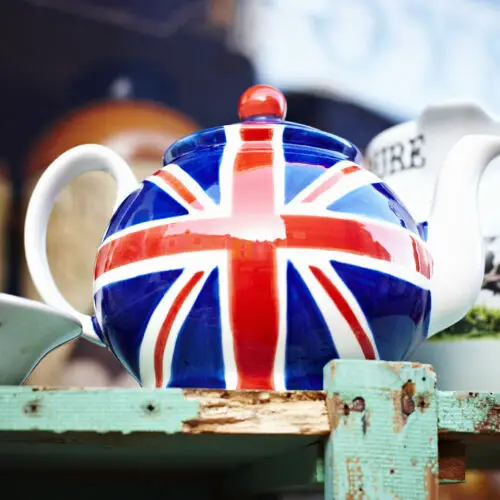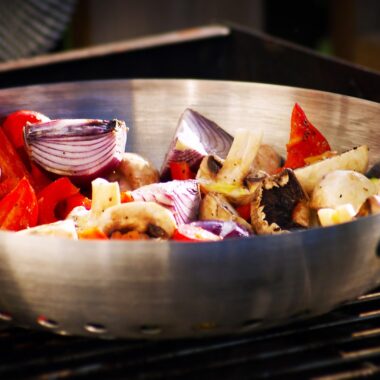The United Kingdom boasts a vibrant and competitive supermarket landscape, catering to diverse consumer needs with a range of options from budget-friendly stores to premium grocers. Whether you’re after affordability, quality, sustainability, or convenience, the UK’s supermarkets offer something for everyone. In this article, we explore the best supermarkets in the UK based on factors such as product range, pricing, customer service, sustainability efforts, and overall shopping experience. Drawing from customer feedback, industry reports, and market trends up to August 2025, we’ll rank the top supermarkets and highlight what makes each stand out.
1. Waitrose: The Pinnacle of Premium Shopping
Overview
Waitrose consistently ranks as one of the UK’s top supermarkets for quality and customer satisfaction. Known for its premium offerings, Waitrose appeals to shoppers seeking high-quality produce, organic options, and an upscale shopping experience. With over 300 stores across the UK and a robust online platform, it’s a go-to for discerning customers.
Why It Stands Out
- Quality of Products: Waitrose is renowned for its fresh produce, ethically sourced meats, and extensive range of organic and free-range products. Its partnerships with trusted suppliers, such as Duchy Originals, ensure premium quality.
- Customer Service: Waitrose excels in customer service, with well-trained staff and a focus on in-store experience. Its loyalty program, myWaitrose, offers personalized discounts and free coffee for members.
- Sustainability: Waitrose has made significant strides in sustainability, including reducing plastic packaging and committing to net-zero emissions by 2035. Its “Unpacked” initiative, trialed in select stores, allows customers to refill containers with pantry staples.
- Online Shopping: Waitrose’s online platform is seamless, with reliable delivery slots and a partnership with Deliveroo for rapid delivery in select areas.
Drawbacks
Waitrose is often perceived as expensive, which may deter budget-conscious shoppers. However, its Essential Waitrose range offers competitive pricing on everyday items.
Best For: Shoppers prioritizing quality, sustainability, and a premium experience.
2. Marks & Spencer (M&S): A Blend of Quality and Innovation
Overview
Marks & Spencer, often referred to as M&S, is a British institution with a strong focus on food halls. With around 1,000 stores nationwide, M&S Foodhalls combine convenience with high-quality offerings, making it a favorite for ready meals, bakery goods, and seasonal produce.
Why It Stands Out
- Food Innovation: M&S is a leader in ready meals and pre-prepared foods, offering restaurant-quality dishes like its Gastropub range. Its bakery section, with freshly baked breads and desserts, is a standout.
- Sustainability Efforts: M&S has a Plan A initiative aiming for net-zero carbon emissions by 2040. It also champions British farmers and sustainable sourcing, with 100% free-range eggs and RSPCA-assured meat.
- Sparks Loyalty Program: The Sparks program rewards customers with personalized offers and supports charitable causes, enhancing the shopping experience.
- Store Experience: M&S Foodhalls are designed for convenience, with compact layouts ideal for quick shops. Its larger stores also offer clothing and home goods, making it a one-stop shop.
Drawbacks
M&S can be pricier than budget chains, and its smaller Foodhalls may lack the extensive range of larger supermarkets. Online delivery options are less widespread compared to competitors.
Best For: Shoppers seeking high-quality ready meals, bakery items, and sustainable sourcing.
3. Sainsbury’s: The All-Rounder for Value and Variety
Overview
Sainsbury’s is one of the UK’s “Big Four” supermarkets, with over 1,400 stores, including superstores and convenience outlets. It strikes a balance between affordability, quality, and range, making it a popular choice for families and weekly shoppers.
Why It Stands Out
- Product Range: Sainsbury’s offers a vast selection, from budget-friendly basics to its premium Taste the Difference range. Its TU clothing line and home goods add versatility.
- Nectar Loyalty Scheme: The Nectar program is one of the UK’s most popular loyalty schemes, allowing customers to earn points redeemable at Sainsbury’s, Argos, and other partners.
- Sustainability: Sainsbury’s is committed to reducing food waste and plastic packaging. Its Net Zero by 2040 pledge includes initiatives like electric delivery vans and sustainable seafood sourcing.
- Convenience: With a mix of large superstores and smaller Sainsbury’s Local shops, it caters to both big shops and quick top-ups. Its online delivery service is reliable, with competitive pricing.
Drawbacks
Some customers note that Sainsbury’s pricing can be inconsistent, with promotions often requiring a Nectar card. Store stock levels can also vary, especially in smaller locations.
Best For: Families and shoppers seeking a balance of value, quality, and convenience.
4. Tesco: The Market Leader with Unmatched Reach
Overview
Tesco is the UK’s largest supermarket chain, with over 3,400 stores and a dominant online presence. Its extensive network, competitive pricing, and Clubcard loyalty program make it a household name.
Why It Stands Out
- Scale and Accessibility: Tesco’s vast network includes superstores, Express convenience shops, and a leading online platform. It’s accessible to nearly every UK household.
- Clubcard Benefits: Tesco’s Clubcard offers significant savings through Clubcard Prices, with discounts on thousands of products. The points system is flexible, redeemable for vouchers or partner rewards.
- Product Diversity: Tesco stocks everything from budget lines to its premium Tesco Finest range. Its international food aisles cater to diverse communities.
- Innovation: Tesco has embraced technology, offering scan-as-you-shop devices and expanding its Whoosh rapid delivery service in urban areas.
Drawbacks
Tesco’s size can lead to inconsistencies in store quality, and some customers find its focus on promotions overwhelming. Customer service can vary by location.
Best For: Shoppers seeking convenience, competitive pricing, and a wide product range.
5. Aldi: The Budget Champion
Overview
Aldi, a German discount chain, has transformed the UK supermarket scene with its no-frills approach and unbeatable prices. With over 1,000 stores, it’s a go-to for budget-conscious shoppers.
Why It Stands Out
- Low Prices: Aldi’s business model focuses on efficiency, offering high-quality products at significantly lower prices than competitors. Its own-brand items often rival premium brands in taste tests.
- Specialbuys: Aldi’s weekly Specialbuys aisle, featuring everything from kitchen gadgets to outdoor gear, adds excitement to the shopping experience.
- Efficiency: Aldi’s streamlined stores and fast checkouts appeal to shoppers who value speed. Its smaller store format reduces overwhelm.
- Quality Recognition: Aldi frequently wins awards for its own-brand products, including wines, meats, and baked goods, proving that low cost doesn’t mean low quality.
Drawbacks
Aldi’s product range is limited compared to larger supermarkets, and its stores lack the polish of premium chains. Online shopping options are minimal, with no full grocery delivery service.
Best For: Budget shoppers and those prioritizing value without sacrificing quality.
6. Lidl: The Discount Rival with Growing Appeal
Overview
Lidl, another German discount chain, competes closely with Aldi, with over 900 stores in the UK. Known for low prices and surprising quality, Lidl has gained a loyal following.
Why It Stands Out
- Affordability: Lidl’s prices are among the lowest in the UK, often matching or undercutting Aldi. Its own-brand products are well-regarded for quality.
- Bakery and Fresh Produce: Lidl’s in-store bakeries offer fresh bread and pastries at bargain prices. Its fresh produce is consistently praised for value.
- Middle Aisle Deals: Like Aldi’s Specialbuys, Lidl’s middle aisle features eclectic deals on household goods, electronics, and seasonal items.
- Sustainability: Lidl is working toward 100% sustainable sourcing for key products like coffee and cocoa. It also aims to make all packaging recyclable by 2025.
Drawbacks
Lidl’s product range is limited, and stock can sell out quickly, especially for middle aisle deals. Its online presence is underdeveloped compared to larger chains.
Best For: Bargain hunters and shoppers who enjoy unique deals.
7. Morrisons: The Northern Gem with Market Street Charm
Overview
Morrisons, part of the Big Four, is known for its Northern roots and “Market Street” concept, which mimics traditional market stalls. With around 500 stores, it’s a strong contender for fresh food lovers.
Why It Stands Out
- Fresh Food Focus: Morrisons’ Market Street counters, offering fresh meat, fish, and bakery items, create a traditional shopping experience. Its butchers and fishmongers are a unique draw.
- More Card: The Morrisons More loyalty program offers points and discounts, with tailored offers for regular shoppers.
- Price Match: Morrisons’ Aldi and Lidl Price Match scheme ensures competitive pricing on key items, bridging the gap between traditional and discount supermarkets.
- Community Focus: Morrisons emphasizes British produce, supporting local farmers and suppliers. Its community initiatives, like food bank partnerships, resonate with customers.
Drawbacks
Morrisons has fewer stores than Tesco or Sainsbury’s, limiting accessibility in some areas. Its online delivery service can be less reliable than competitors.
Best For: Shoppers who value fresh, locally sourced food and a traditional market feel.
8. Asda: The Budget-Friendly Big Four Player
Overview
Asda, another Big Four supermarket, is known for its low prices and extensive range. With over 600 stores, it caters to families and budget shoppers.
Why It Stands Out
- Value for Money: Asda’s “Rollback” deals and Just Essentials range offer some of the cheapest products in the market.
- George Clothing: Asda’s George clothing line is a major draw, offering affordable fashion alongside groceries.
- Online Convenience: Asda’s online platform is user-friendly, with flexible delivery options and click-and-collect services.
- Diversity: Asda stocks a wide range of international foods, catering to diverse communities.
Drawbacks
Asda’s store quality can vary, and some customers report inconsistent stock levels. Its loyalty program is less rewarding than Tesco’s or Sainsbury’s.
Best For: Families and budget shoppers looking for variety and low prices.
9. Co-op: The Ethical Convenience Store
Overview
The Co-op focuses on convenience, with over 2,500 small-format stores across the UK. It’s known for its ethical stance and community focus.
Why It Stands Out
- Ethical Sourcing: The Co-op is a leader in Fairtrade products and ethical sourcing, with 100% Fairtrade tea, coffee, and bananas.
- Membership Benefits: Co-op members earn rewards and contribute to community projects, aligning with its cooperative ethos.
- Convenience: Co-op’s small stores are ideal for quick shops, with a focus on fresh and frozen foods.
- Sustainability: The Co-op aims to make all packaging recyclable by 2025 and supports local food banks.
Drawbacks
Co-op stores are smaller, with a limited product range. Prices can be higher than larger supermarkets, reflecting the convenience focus.
Best For: Shoppers prioritizing ethics and convenience.
10. Booths: The Northern Premium Choice
Overview
Booths, a smaller chain with around 30 stores, primarily in Northern England, is often called the “Waitrose of the North.” It focuses on quality and local produce.
Why It Stands Out
- Local Sourcing: Booths champions Northern suppliers, offering unique regional products like Lancashire cheeses and Cumbrian meats.
- Quality Focus: Its fresh produce and artisan goods rival Waitrose, with a curated selection of wines and deli items.
- Customer Experience: Booths stores are known for their welcoming atmosphere and knowledgeable staff.
- Sustainability: Booths emphasizes sustainable packaging and local sourcing to reduce its carbon footprint.
Drawbacks
Booths’ limited store network restricts its reach, and it lacks a strong online presence. Prices are higher, reflecting its premium positioning.
Best For: Northern shoppers seeking premium, locally sourced products.
Conclusion
The UK’s supermarket landscape is diverse, with each retailer carving out a niche. Waitrose and M&S excel in quality and innovation, while Tesco and Sainsbury’s offer unmatched variety and convenience. Aldi and Lidl dominate for budget shoppers, and Morrisons, Asda, Co-op, and Booths cater to specific needs, from fresh food to ethics. Your choice depends on priorities—whether it’s price, quality, sustainability, or convenience. With ongoing innovations like rapid delivery and sustainability pledges, UK supermarkets continue to evolve, ensuring there’s a perfect option for every shopper.


















